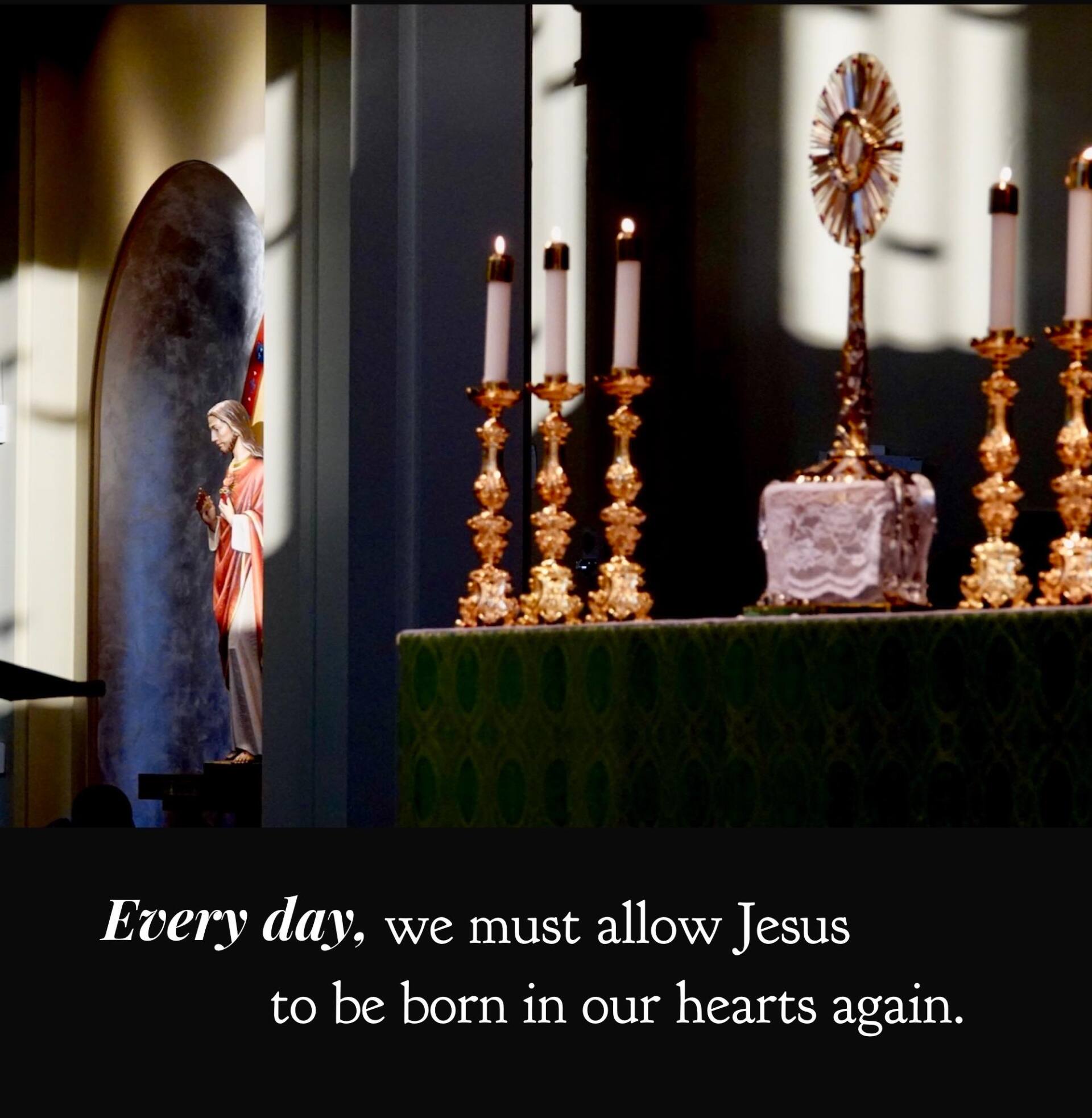By John Putnam
•
December 19, 2025
As our Advent preparations draw to a close and Christmas fast approaches, it is fitting that today’s readings demonstrate the intensity of the Father’s perfect and passionate love for each of us, culminating in the gift of His own Son, Jesus Christ, on Christmas Day. As we reflect on the enormity of this gift, let us ask ourselves what we can offer in return. In our first reading, from Isaiah, the Lord invites King Ahaz to “ask for a sign from the Lord, your God.” And not just any sign. The Lord says, “let it be deep as the nether-world, or high as the sky!” Ahaz, though, cannot arouse himself from his bleak and limited outlook, and actually refuses this invitation. Undeterred by his negativity, the Lord says through the prophet Isaiah, that he himself will provide the sign: “the virgin shall conceive and bear a son” and his name will be Emmanuel which means, “God with us.” What great love and patience our heavenly Father has shown his people throughout all ages! In the second reading, from Paul’s letter to the Romans, St. Paul sends a blessing of “Grace…and peace from God our Father and the Lord Jesus Christ. This — grace and peace — is precisely the gift we celebrate on Christmas Day. Through his incarnation, Jesus brings the intimate love of God right into our midst; and through His death and resurrection, He saves us from our sins and restores us to right relationship with the Father. This is the peace that the world cannot offer. In response to such an overwhelming gift, what can we do except offer our lives as a gift in return, embracing a stewardship way of life with all the love and strength we have to give? In our Gospel passage from Matthew, we find an unparalleled example of one who embraced this way of life in St. Joseph, as he responds to God’s call to him through the message of an angel. St. Joseph immediately and humbly obeys the instruction from the angel: “Do not be afraid to take Mary your wife into your home. For it is through the Holy Spirit that this child has been conceived in her. She will bear a son, and you are to name him Jesus, because he will save his people from their sins.” Open to this extraordinary role, he did as the angel commanded and “takes Mary into his home.” We never hear St. Joseph speak, but the Scriptures tell us he was always listening, attentive to the leading of the Holy Spirit for his family. It was Joseph who found the stable where the baby Jesus would be born. No doubt it was Joseph who cleaned it up and prepared it for Mary and Jesus since we know that Mary was about to give birth. Joseph protected the family, guarded them, and tended to their safety, their comfort, and their well-being at the expense of his own plans and preferences. Though we do not hear any words from St. Joseph his actions clearly show that he offered himself, his whole life, as a gift to his family through his strong guidance, protection, and service. Let us imitate St. Joseph, then, as good stewards, giving our very lives to those around us in love and gratitude to God who has given us everything we have, especially His own Son, Jesus Christ. We will no doubt find that the more we give ourselves away, the more our generous Father will fill us with His grace and peace — these are truly the best Christmas gifts we could receive. © Catholic Stewardship Consultants, 2025 Pastoral Pondering Christmas is upon us and as we enter into these last days before the celebration of the Lord’s birth, I wanted to take this opportunity to express my heartfelt gratitude for the myriad ways each one of you makes St. Mark a wonderful place to pray, to worship and find a parish home. As I speak to people who visit us from other parts of the country or parishioners who, due to trips away, visit other parishes, it is nice to hear that St. Mark has something special about it. That “something special” has a great deal to do with the people who call St. Mark home. Christmas is a time to share the love of Christ, and over the past several weeks, you have done just that in our various charitable efforts, most recently our Christmas Giving Tree. Lives have been impacted for the better because of your generous response, and I know that God will bless you because He is never outdone in generosity. Finally, please know that Fathers Angermeyer, Martinez, Huber and I wish each and everyone of you a very merry and blessing-filled Christmas!

